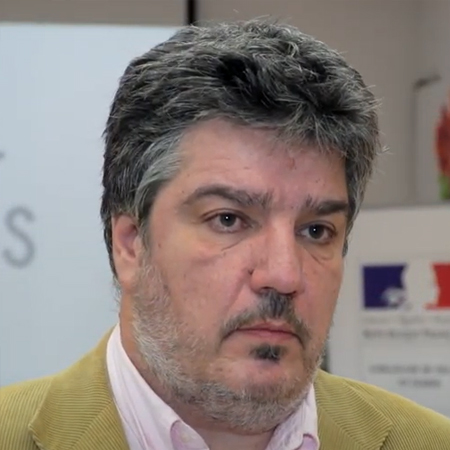
12th international experts’ conference
ENVIROMANAGEMENT 2022
CONTINUOUS IMPROVEMENT IN THE WASTE AND RECYCLING INDUSTRY
GOALS, TARGETS, AND LIMITS
OCTOBER 3 – 4, 2022
HOTEL PATRIA ****, ŠTRBSKÉ PLESO, HIGH TATRAS, SLOVAKIA
Lecturer
Nebojša Vraneš
Advisor in Centre for the circular economy
Chamber of Commerce and Industry of Serbia
Belgrade
Serbia
Presentation
Serbia’s case study circular economy on the wings of the end of waste.
Key Words
Circular economy, end of waste, Serbia, industrial symbiosis
Annotation
The Institute for abolishing the status of waste has long existed in the legislation of the European Union, but there is no consensus on a clear definition of the moment when waste ceases to be waste and becomes a product, material, or raw material.
This issue became even more pronounced when the European Commission adopted the Commission’s Communication COM (2015) 614 final, dated 2.12.2015.
Closing the circle – The European Union Action Plan for the Circular Economy, which plans the transition from a linear to a circular economy. That is, it is prescribed that the waste in which the resource is captured is no longer disposed of, that is, disposed of as little as possible and that the rest is recycled or a new substance, raw material, or product is produced.
In order to meet the requirements of the circular economy, it is necessary to provide a mechanism and prescribe the conditions that are the moment when waste becomes a valuable resource. Waste/non-waste status varies from sector to sector. In some sectors, despite being classified as waste, materials are in free circulation on the market, while in other sectors a clear boundary between waste and products is important, as is the case in the food sector. However, the procedure for revoking the status of the waste left it to the Member States to prescribe the conditions under which the status of certain waste can be revoked.
Removal of waste status ensures a high level of environmental protection and economic benefits in accordance with legal certainty in the internal market. As one of the waste management options is landfilling, it causes discomfort and fear among consumers. In order to change this, the concept of abolishing the status of waste was introduced, which contains a set of conditions that materials obtained from waste must meet, which guarantee the quality of the material so that the material will not be rejected or have a negative impact on human health and the environment. It encourages the production of secondary raw materials of better quality by defining the technical and ecological minimums that the product must meet. Applying the concept would lead to an increase in demand and a positive impact on recycling rates.
Lecturer’s Profile
Nebojša Vraneš
• international expert for waste management
I have been dealing with the management of special waste streams and hazardous waste for over 20 years. Cooperation on international projects and the selection of the best available technologies for waste treatment are also at the top of my business resume.
I am currently an advisor in the Centre for the circular economy at the Serbian Chamber of Commerce and Industry with responsibilities for industrial symbiosis, end of waste, waste to energy, zero waste, decarbonisation and the recycling industry of Serbia.
Organization’s Profile
Chamber of Commerce and Industry of Serbia (CCIS) is an independent, modern and responsible non-budgetary institution, a national association of all Serbian businesspeople, which serves the best interests of its members and the Serbian economy, owing to its tradition, experience and knowledge. CCIS is defined by the Law as an association of companies and entrepreneurs.
A 165-year tradition of the Serbian chamber system and the developed chamber network, Representative Offices abroad, are the guarantor of efficient implementation of the support mechanisms for the economy and businesspeople in their activities.
Linking the entire Serbia΄s economy in a single system, classified by economic sectors in 18 business associations and by regions in 17 regional chambers, including the City of Belgrade. Key commitment is to make Serbia visible as a market economy country, with investment opportunities, open borders, and ready to join the European trends in a competitive way.

